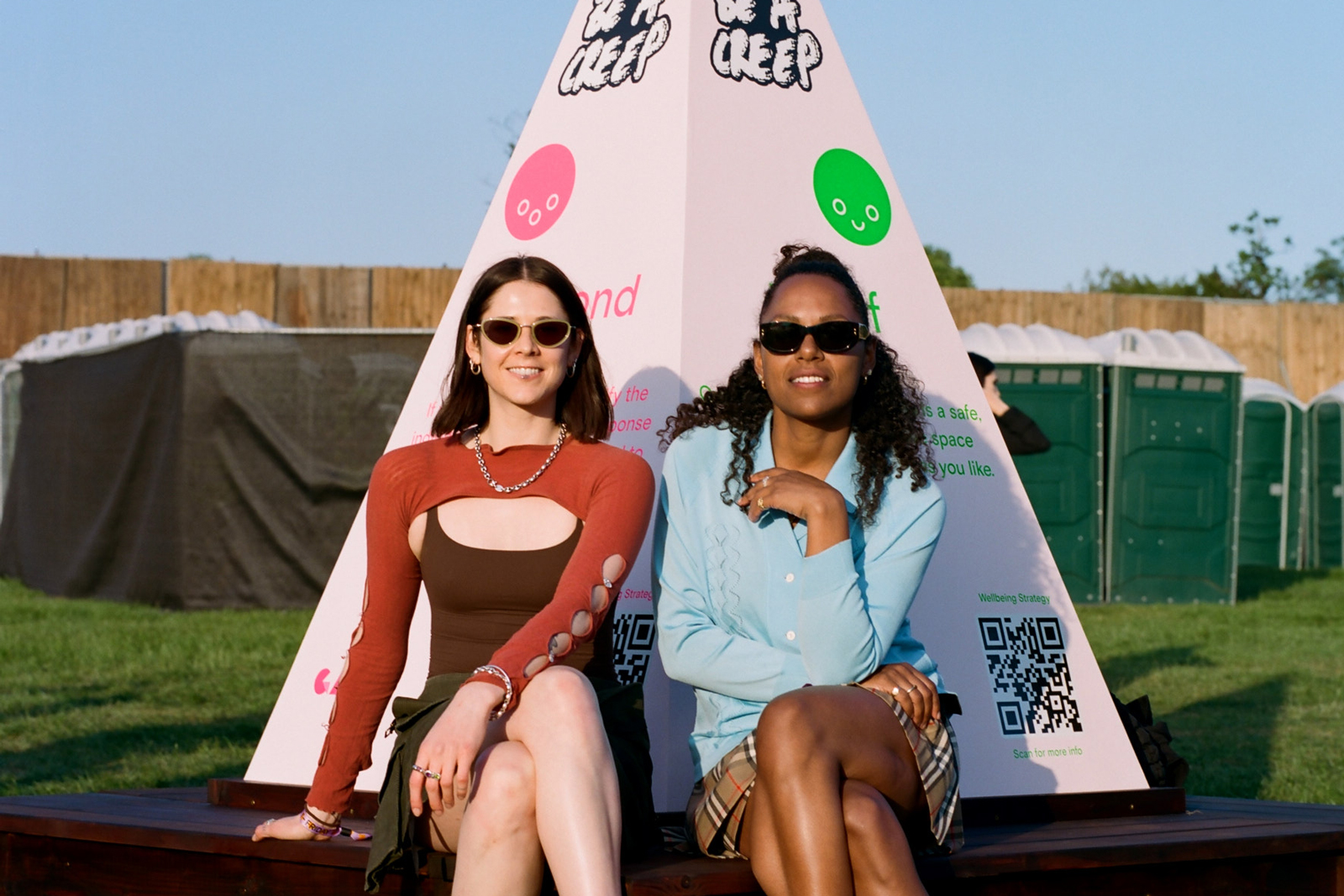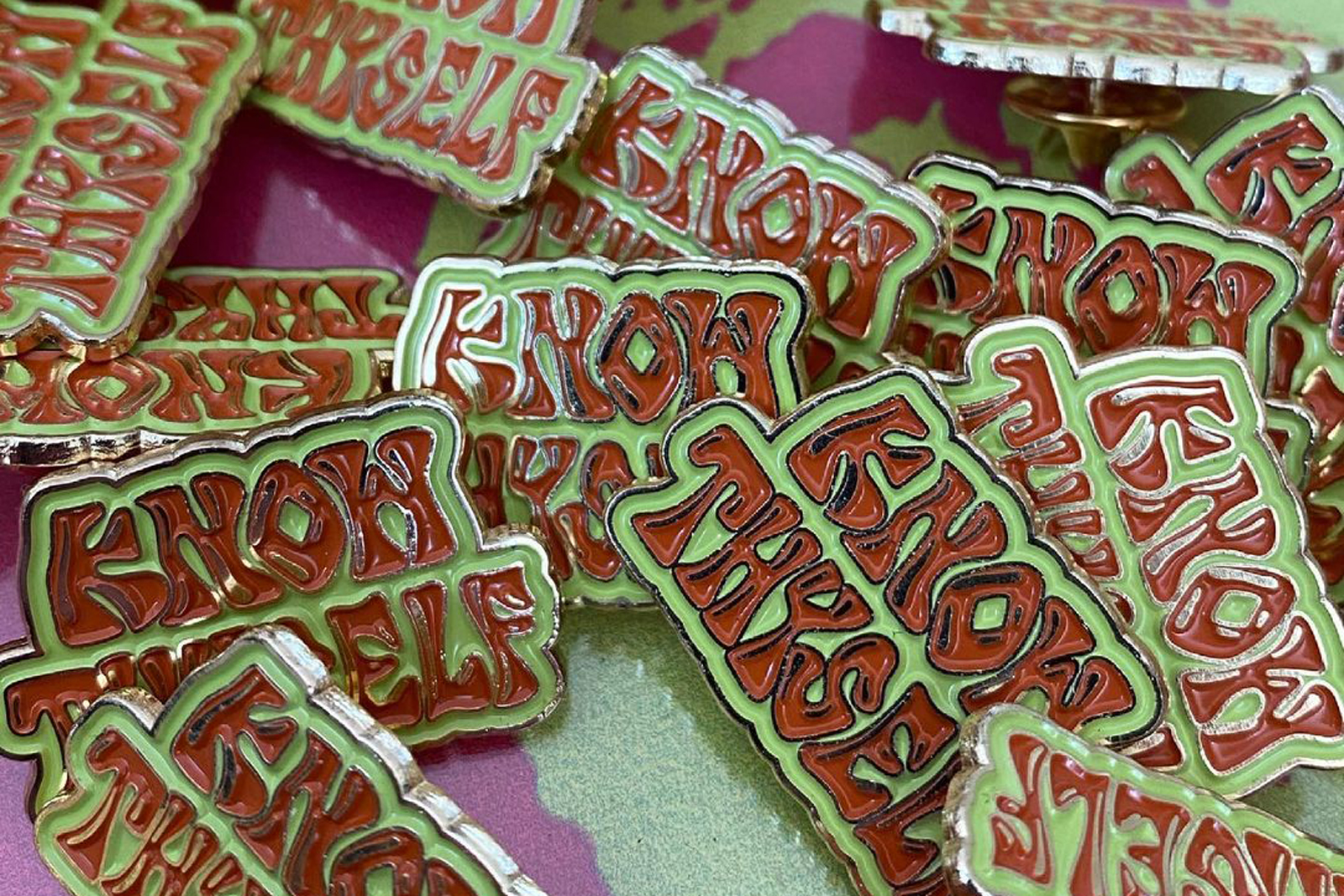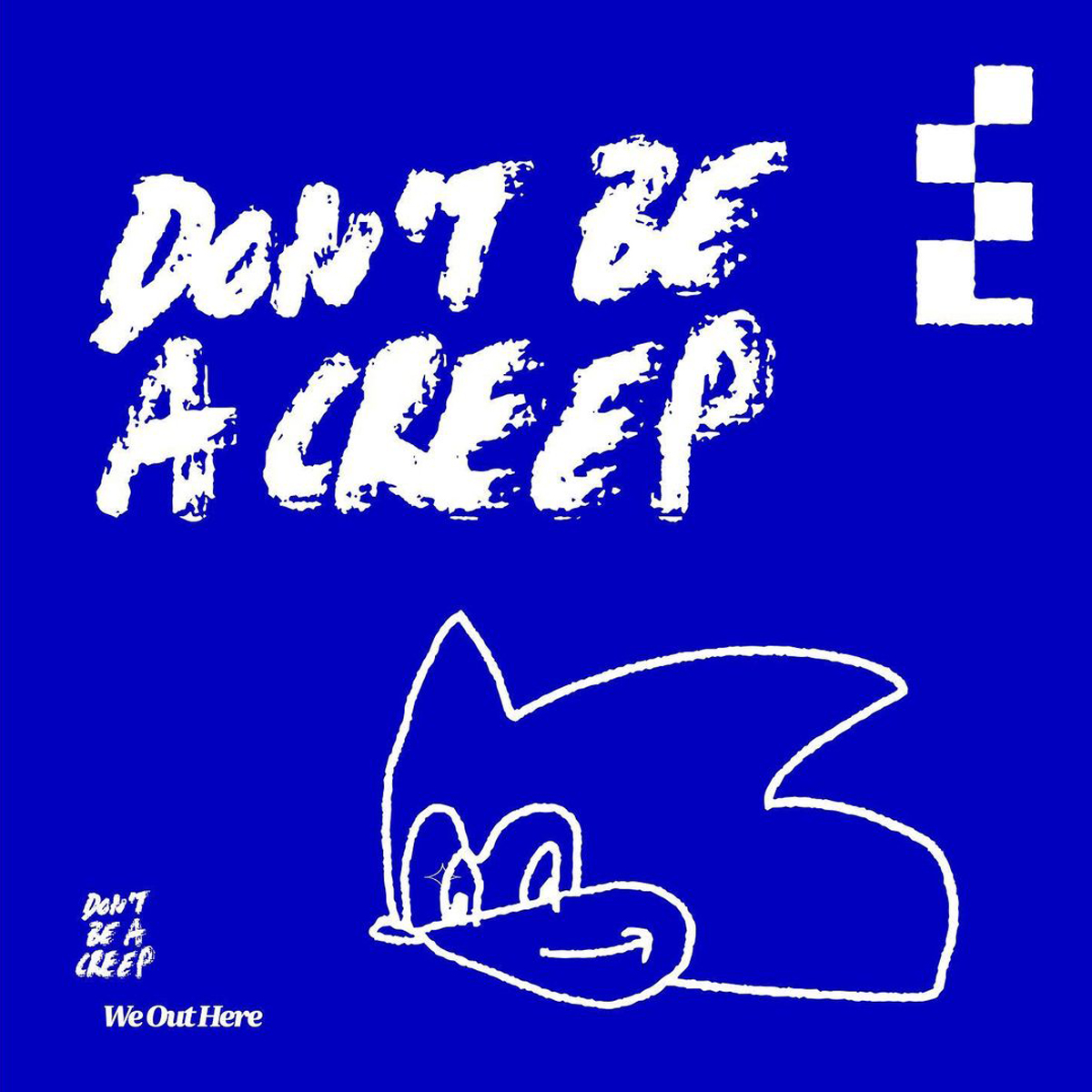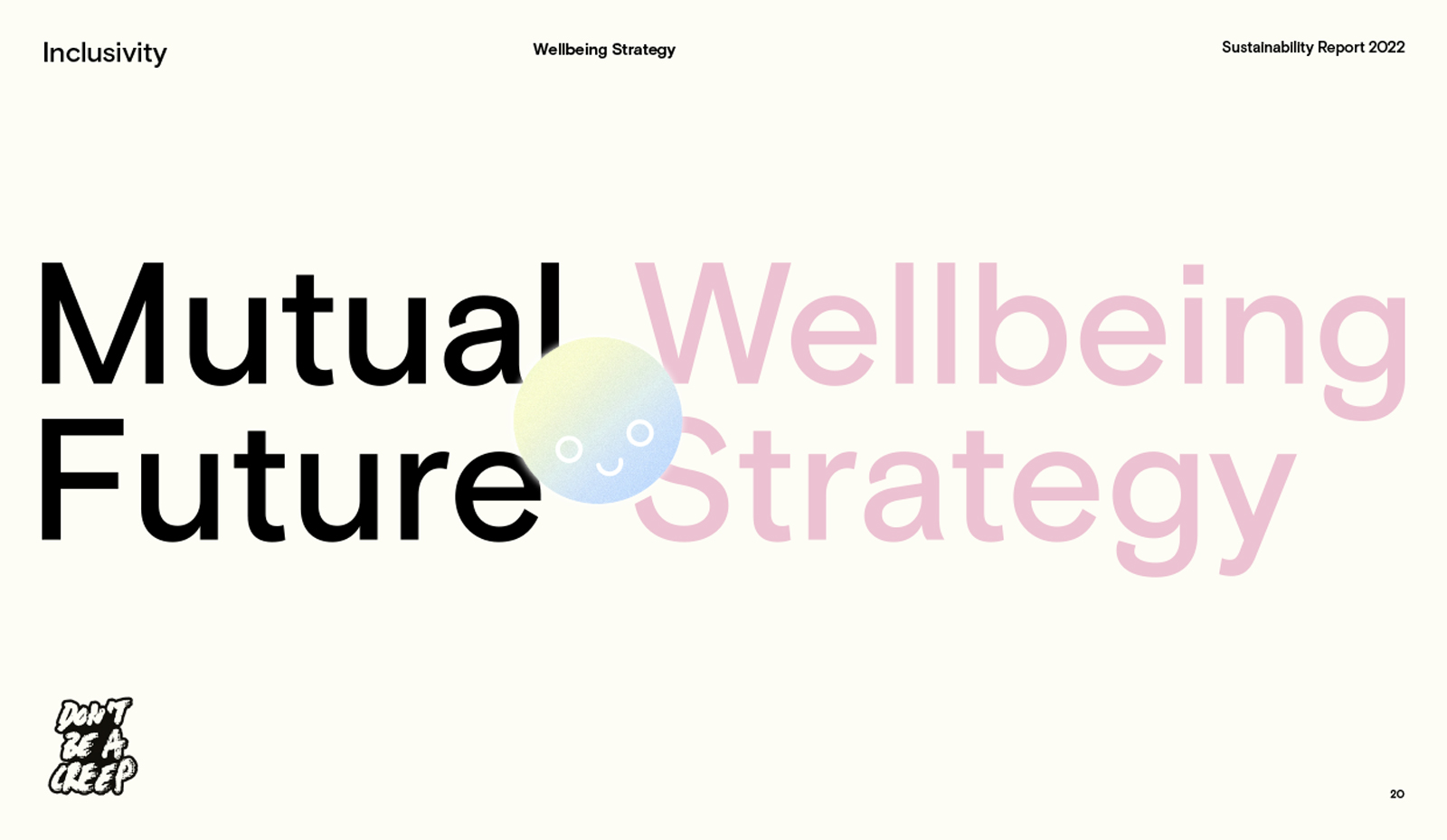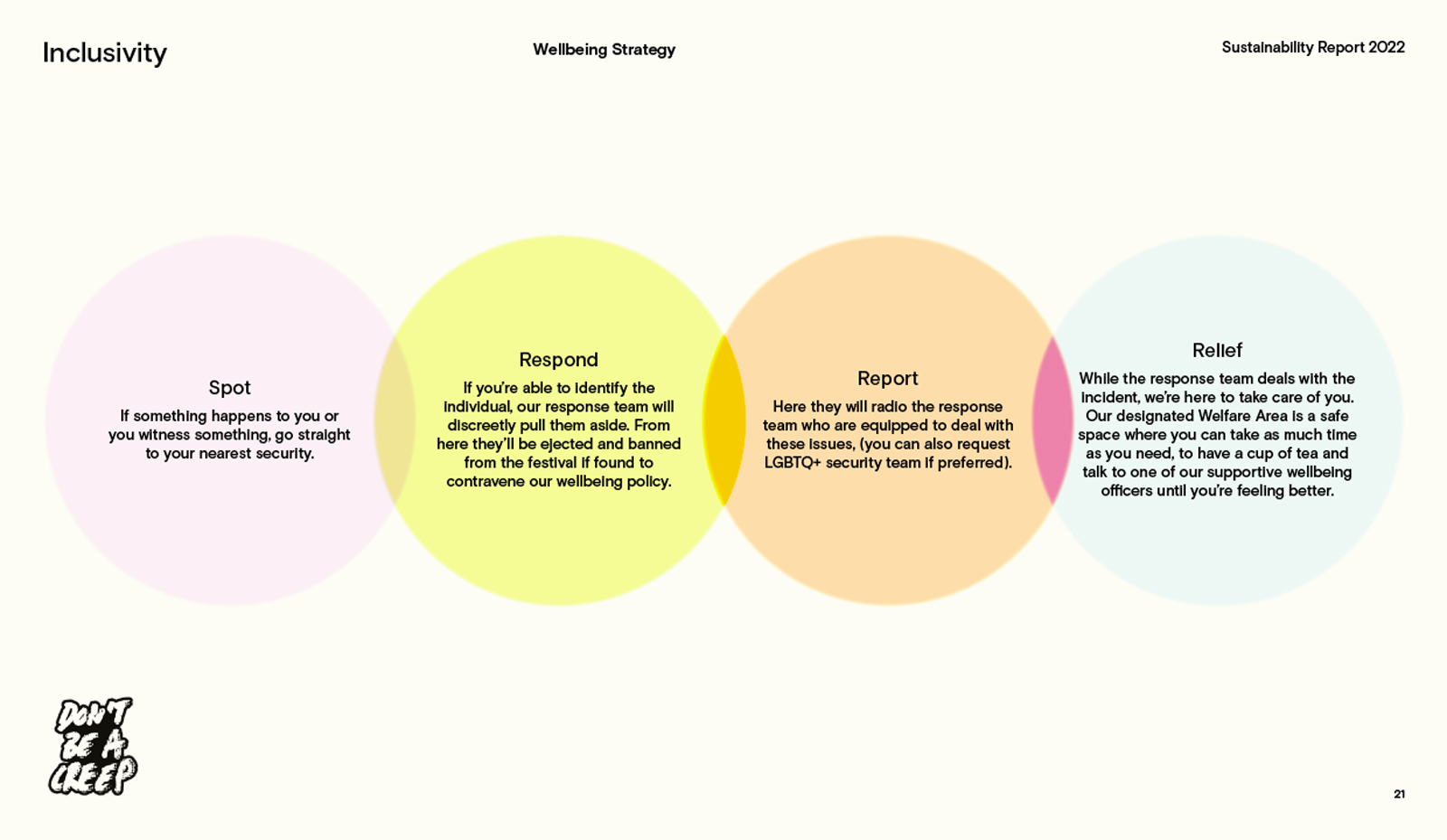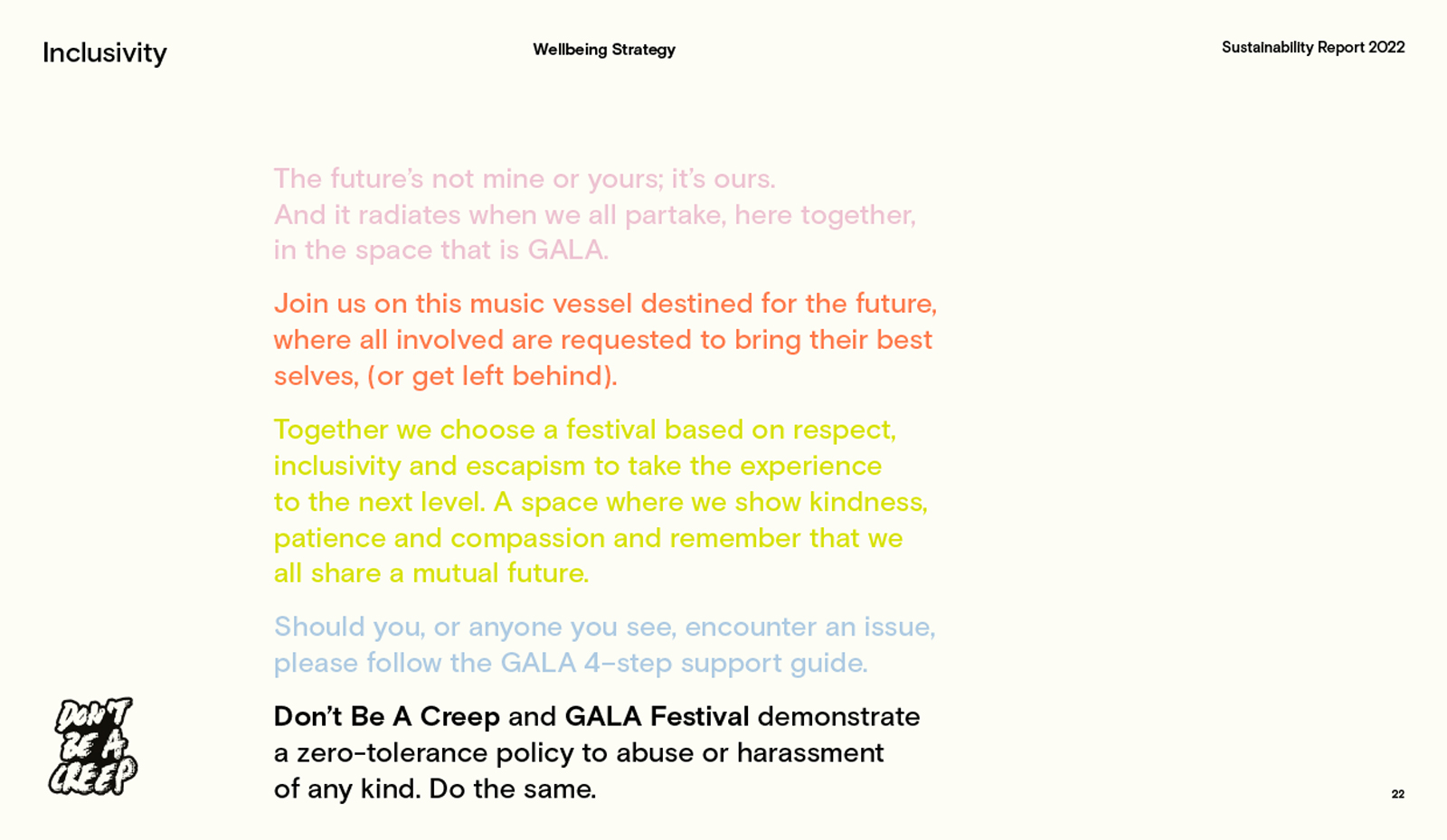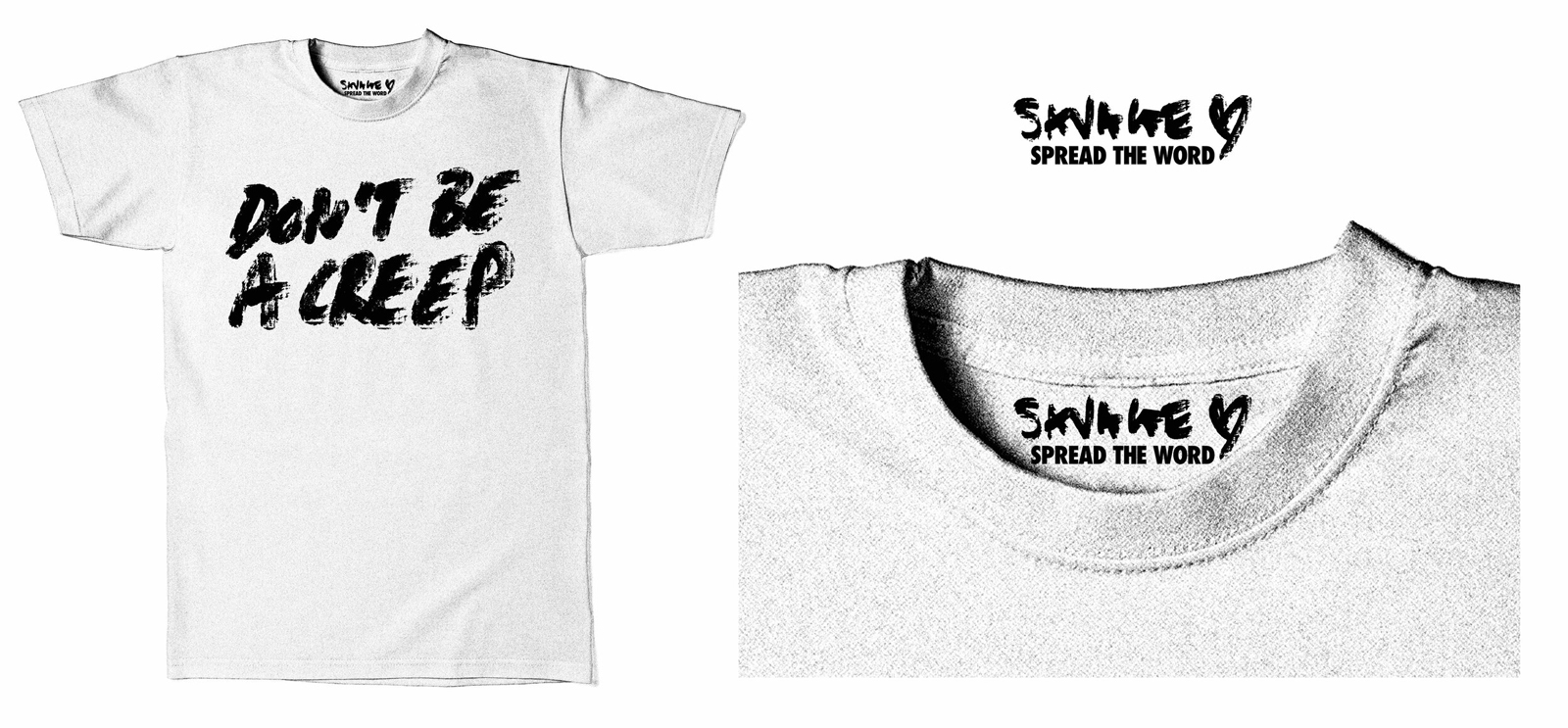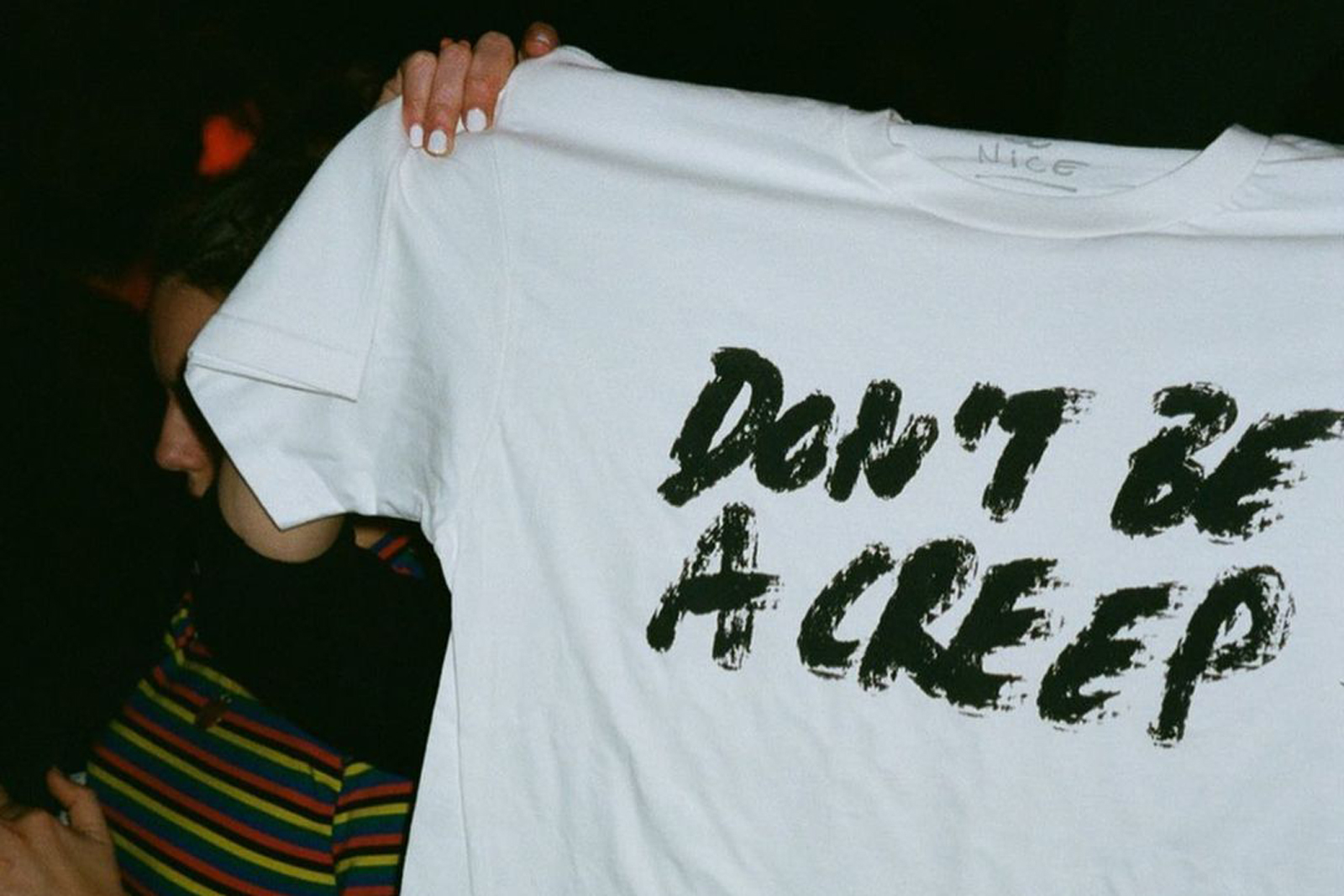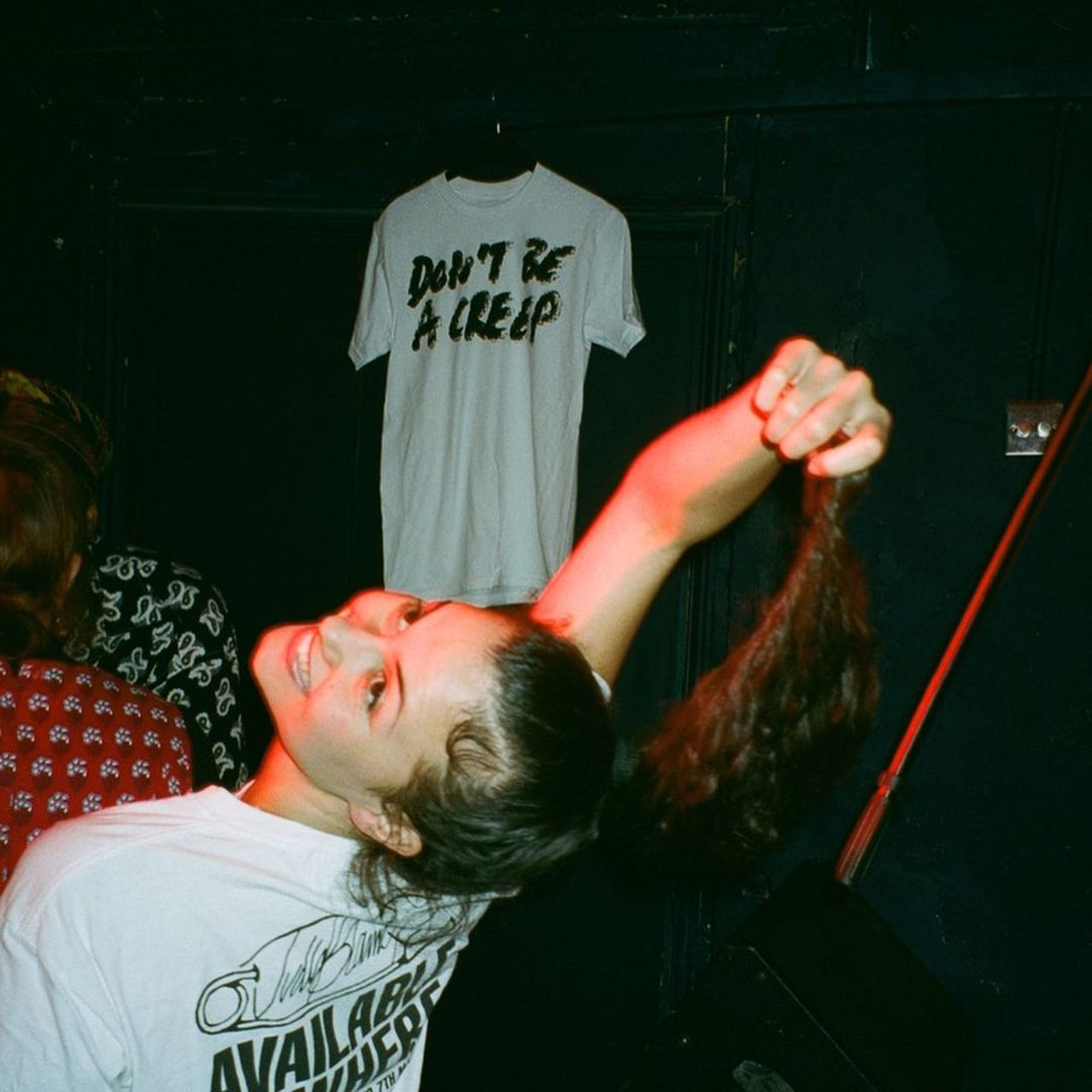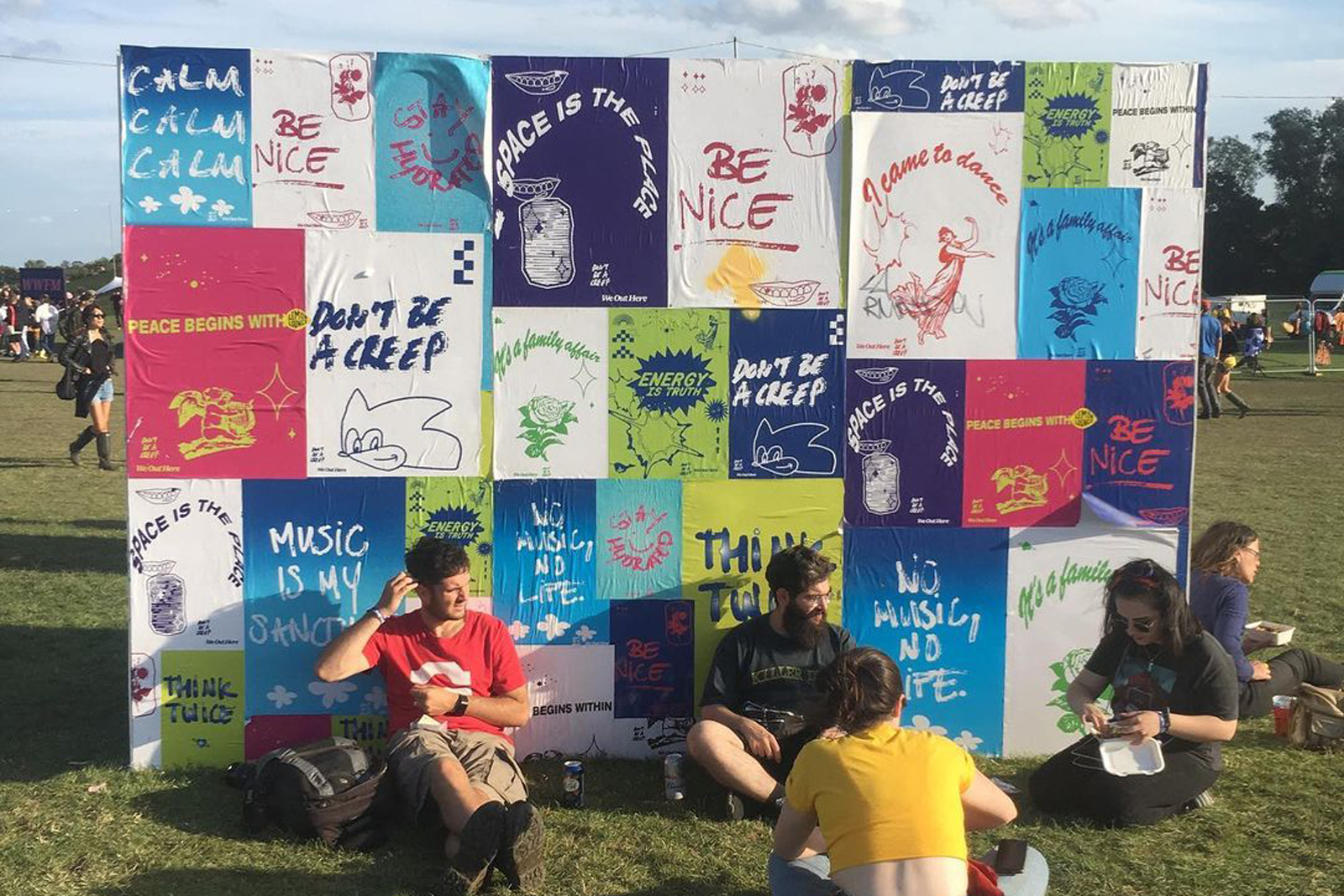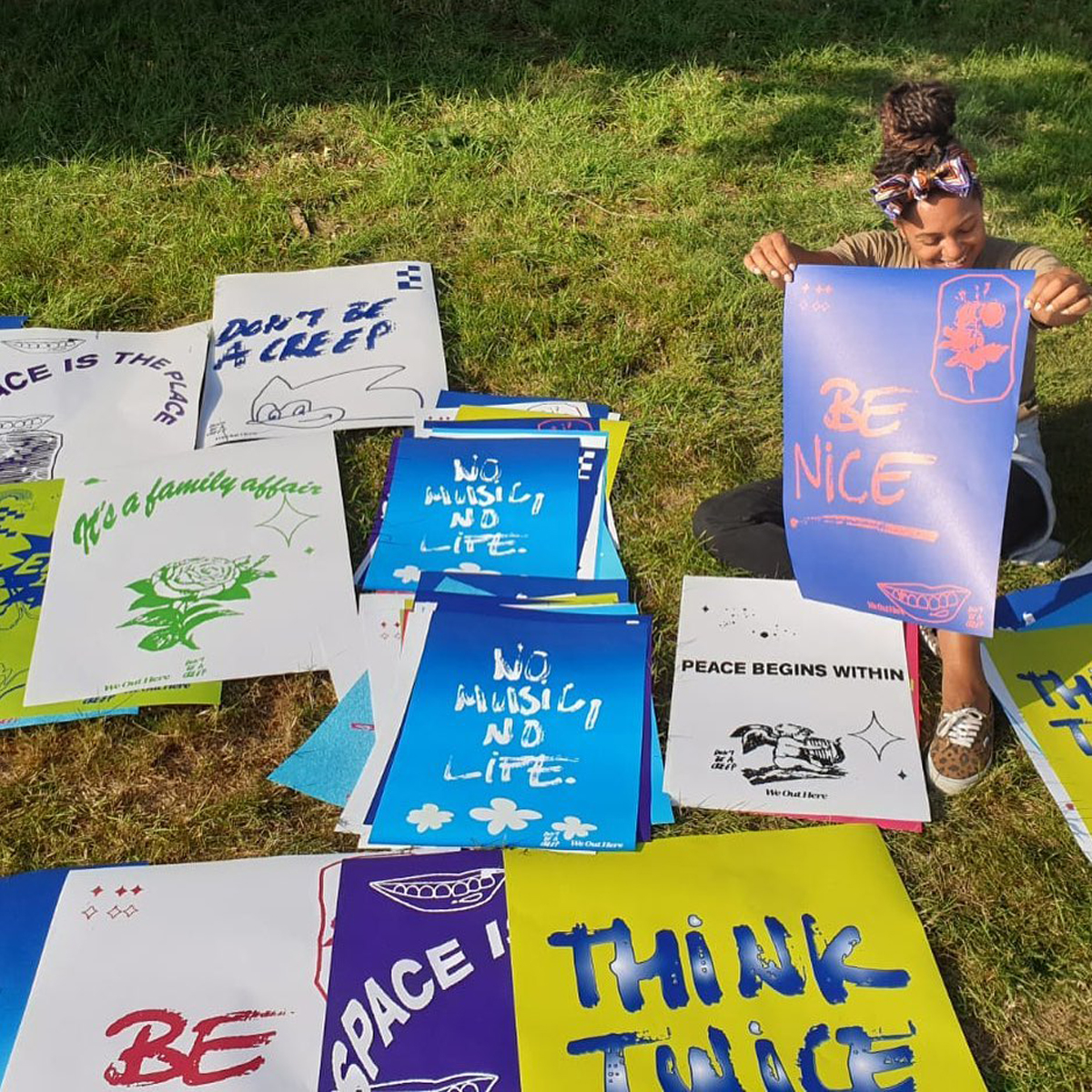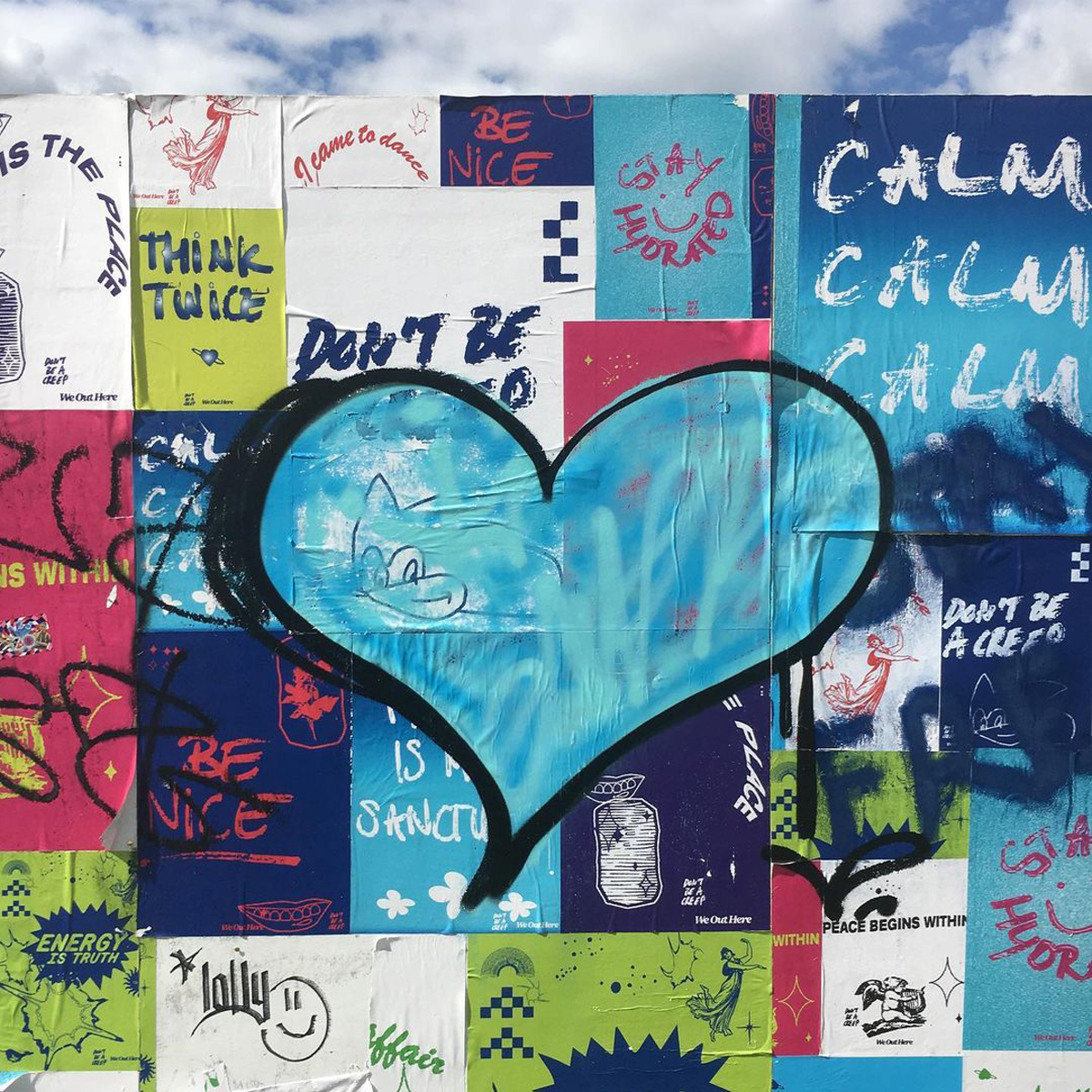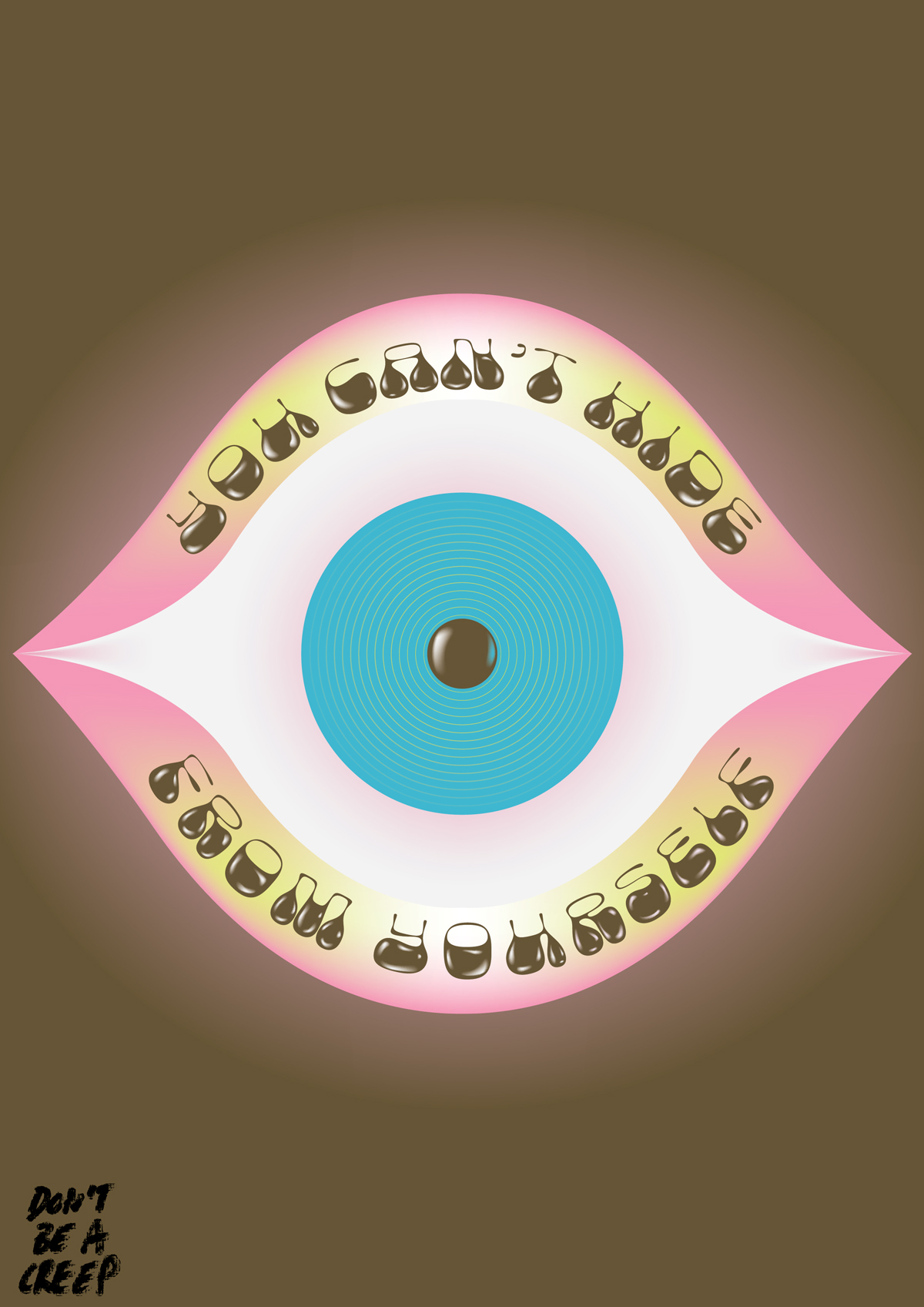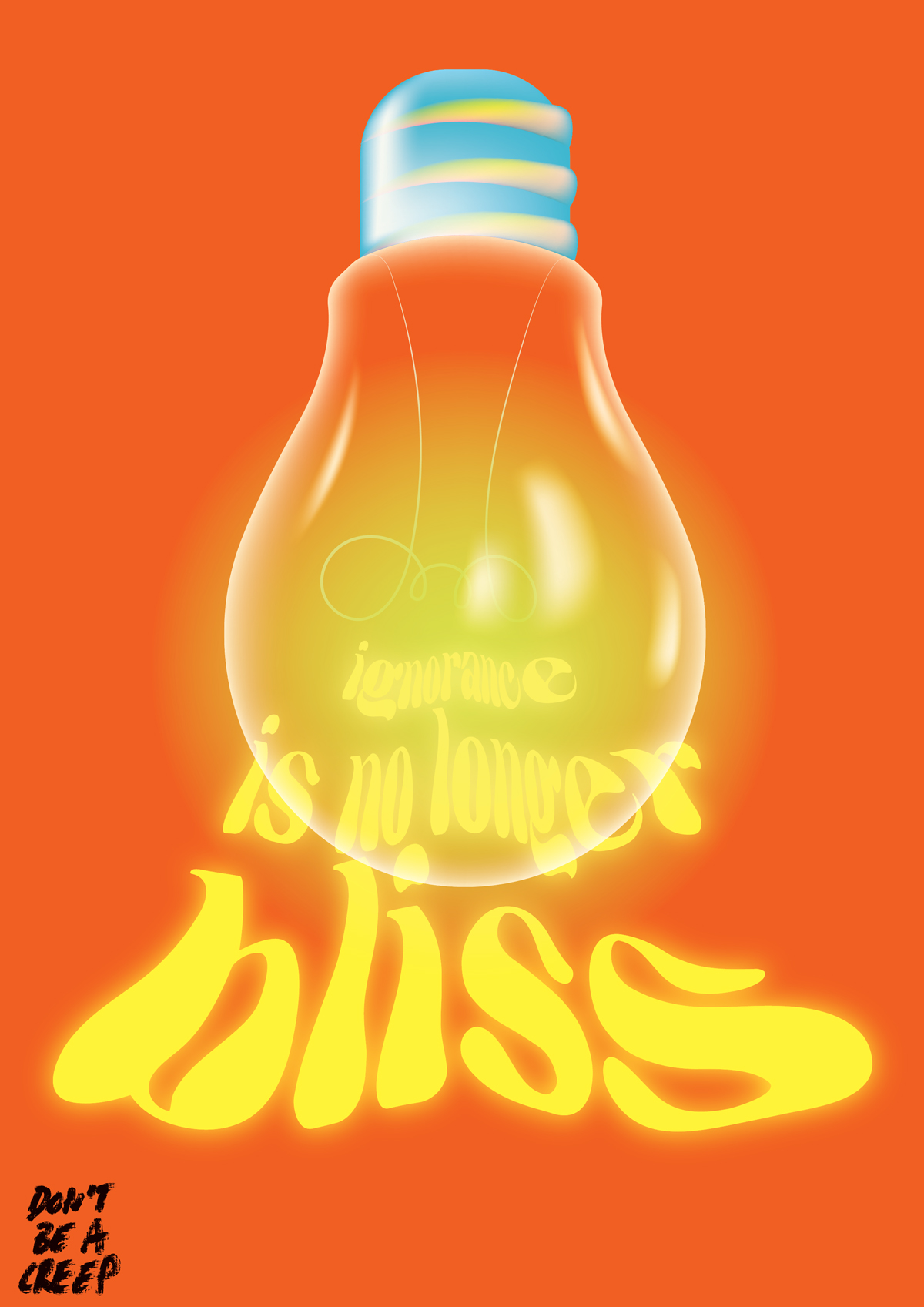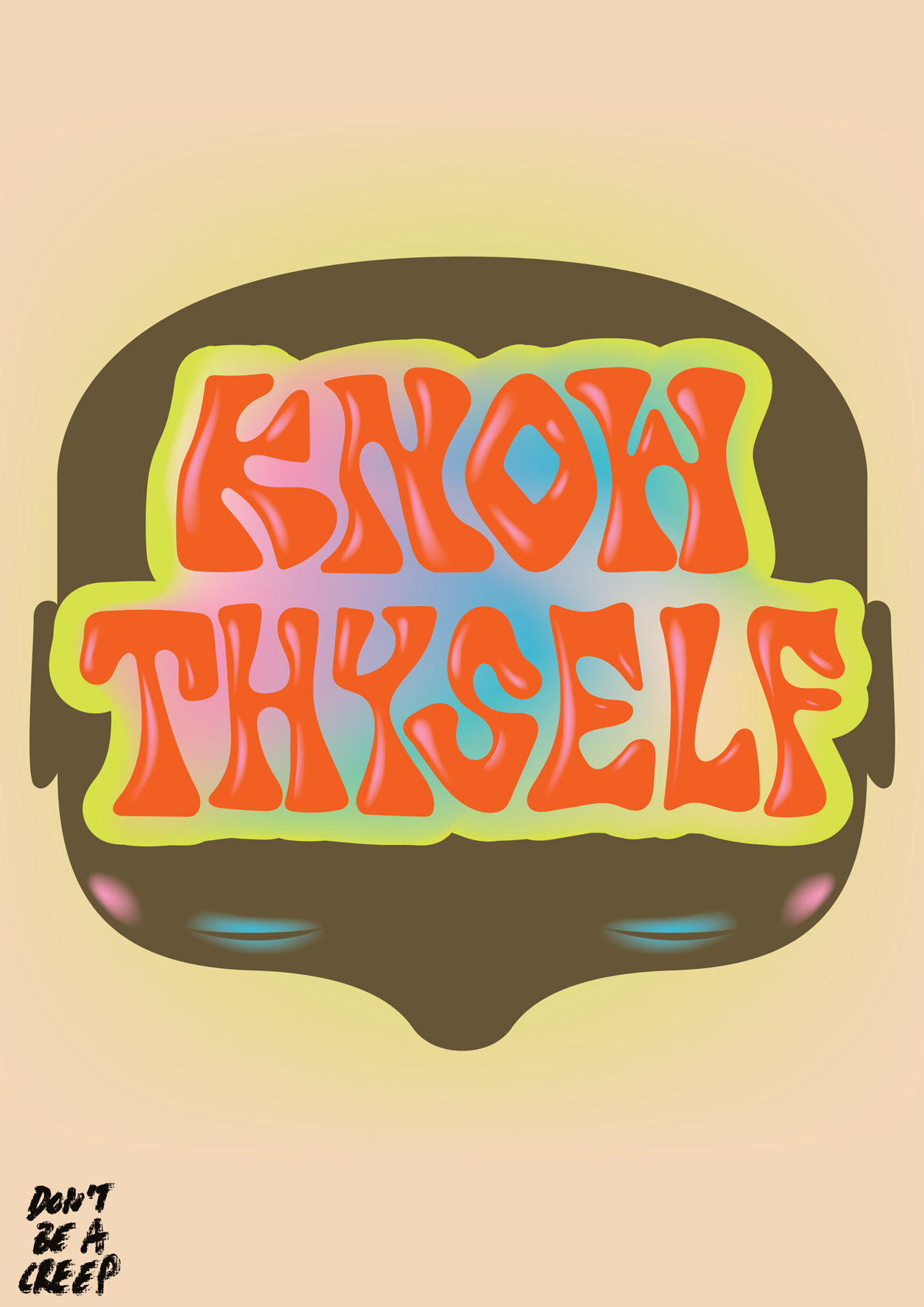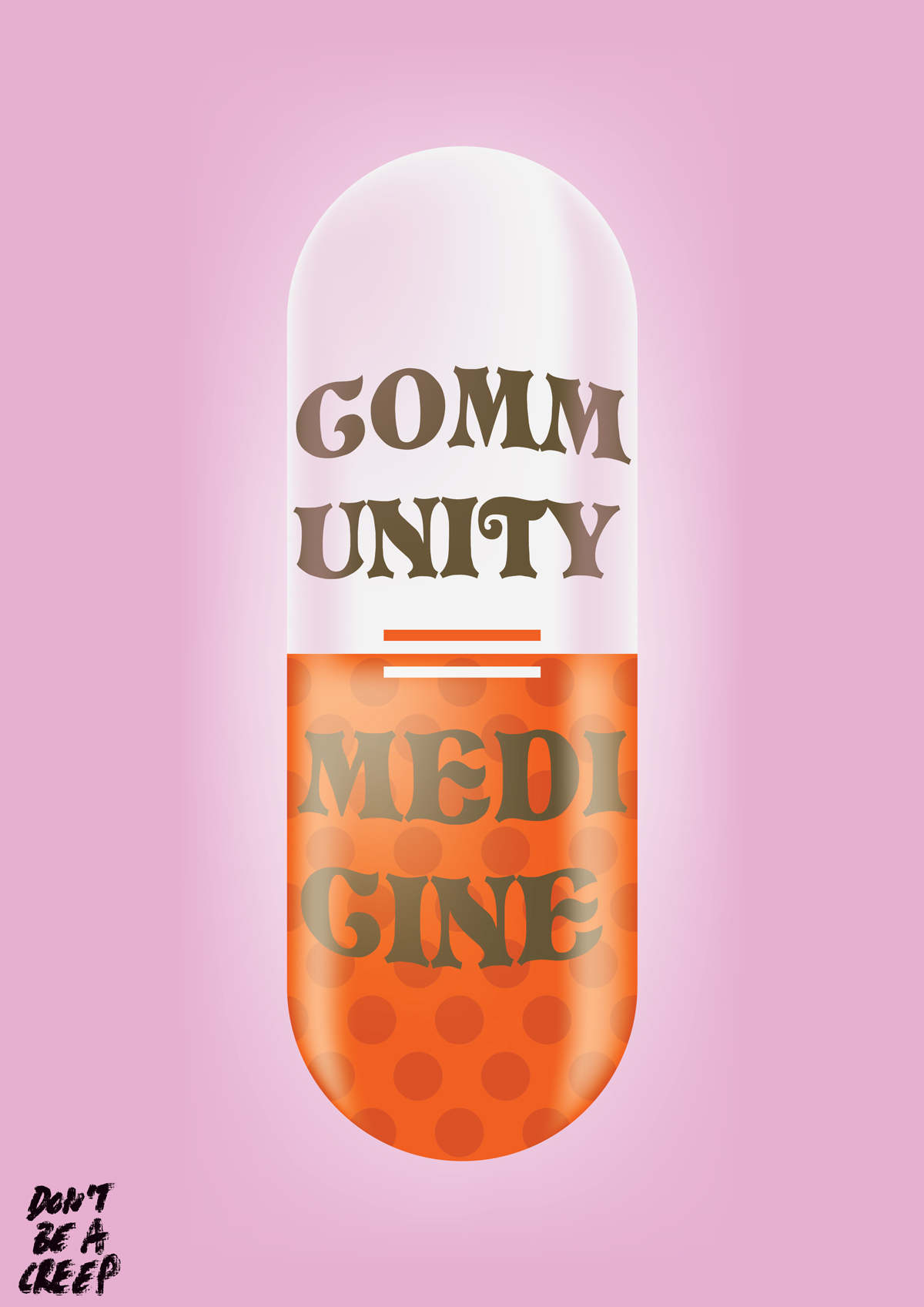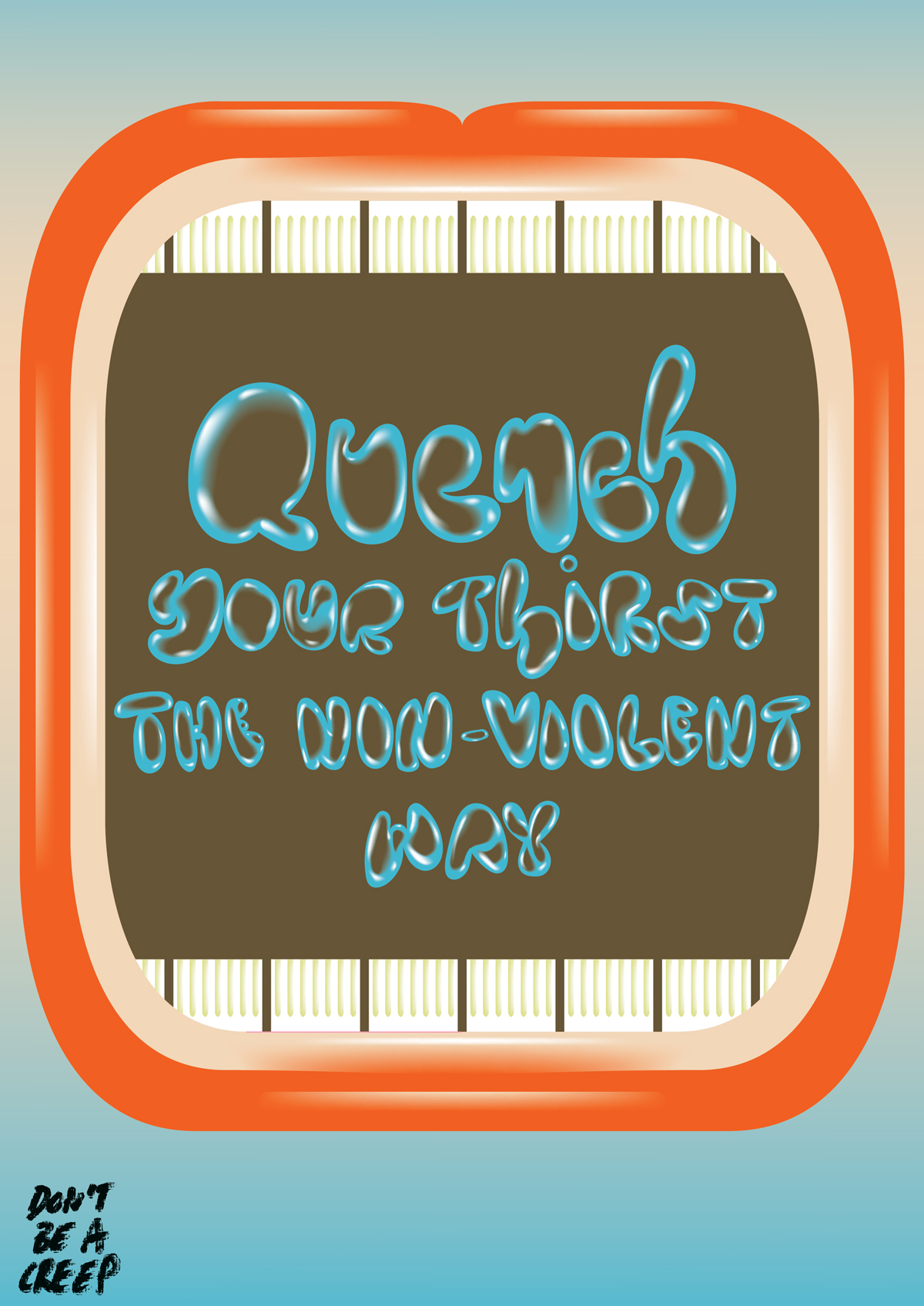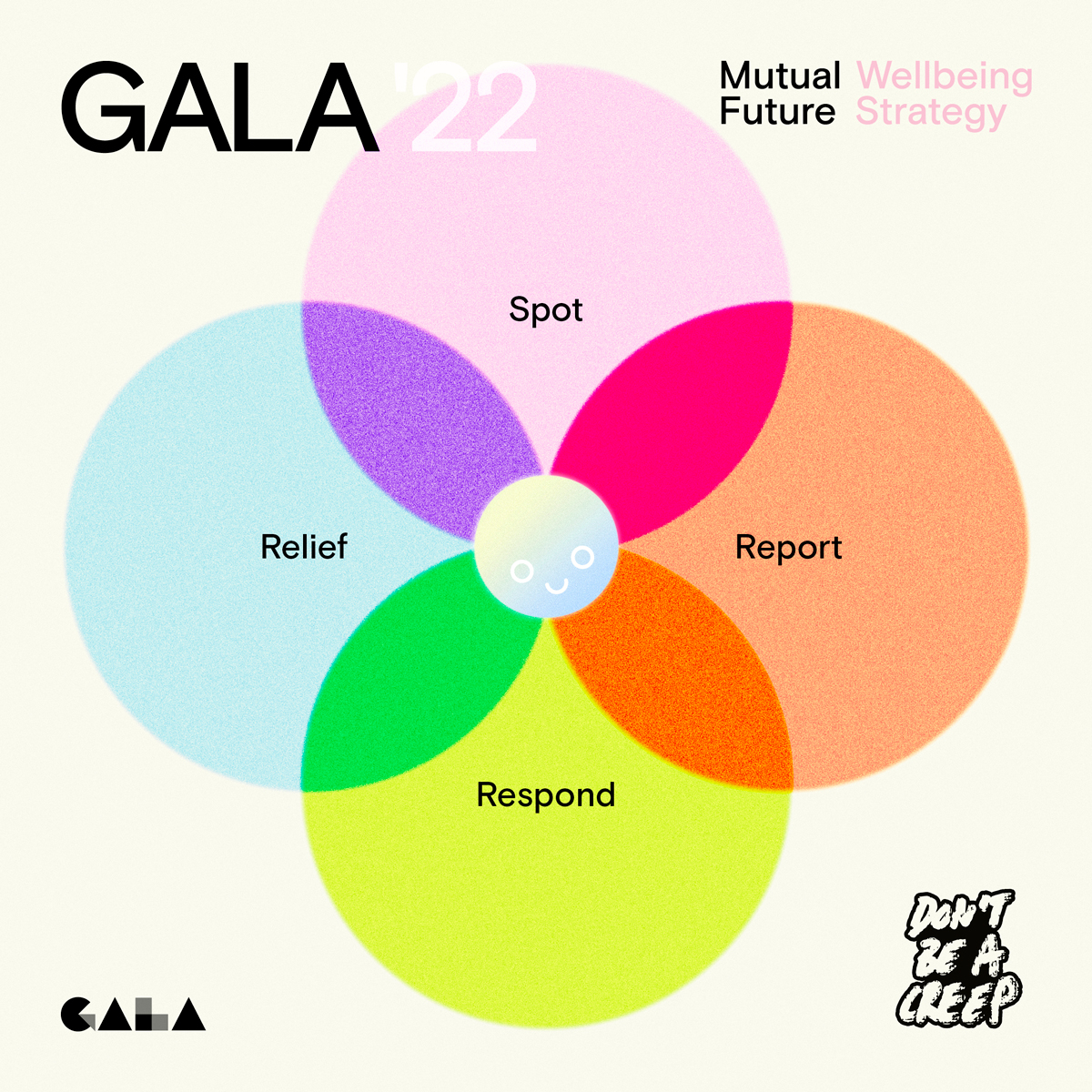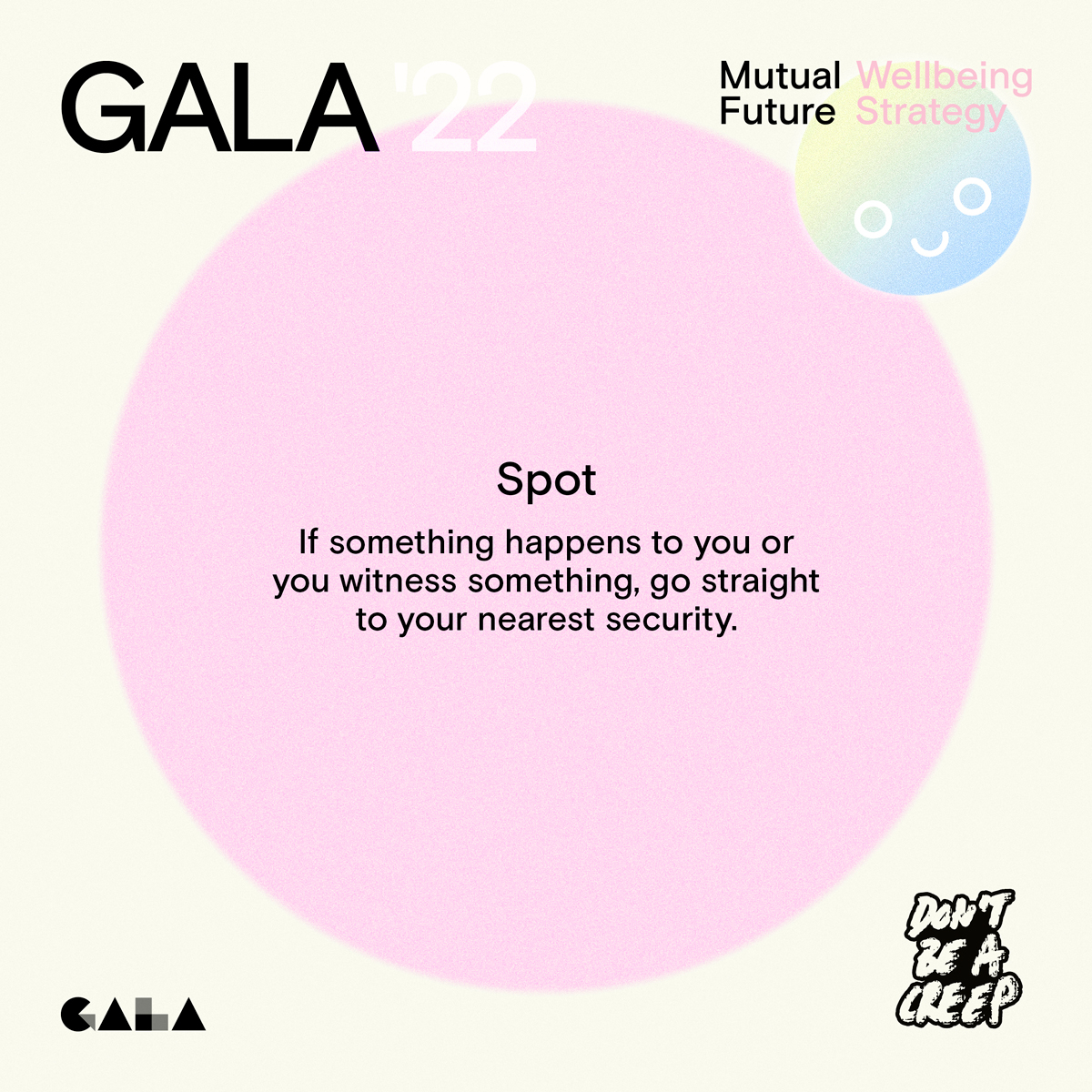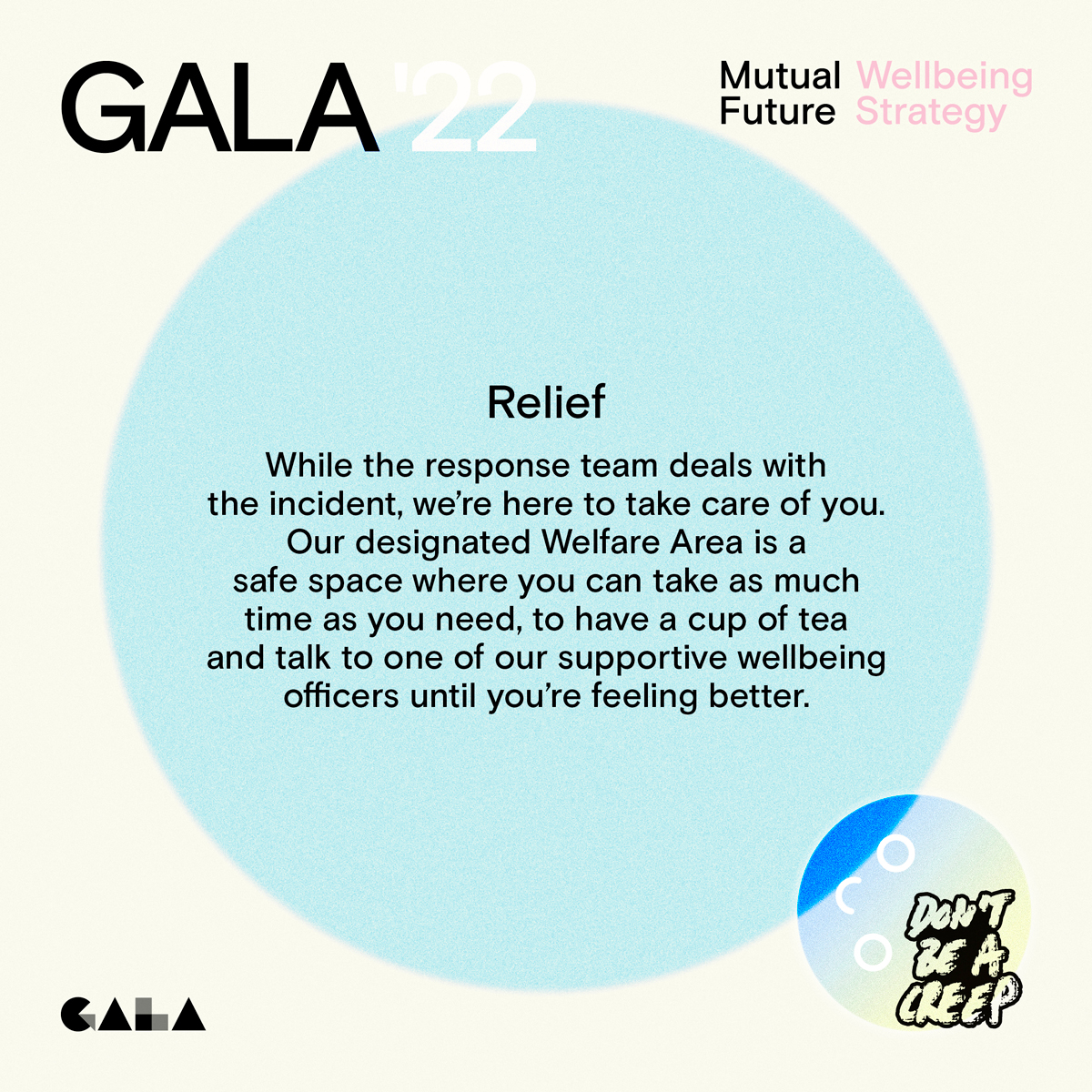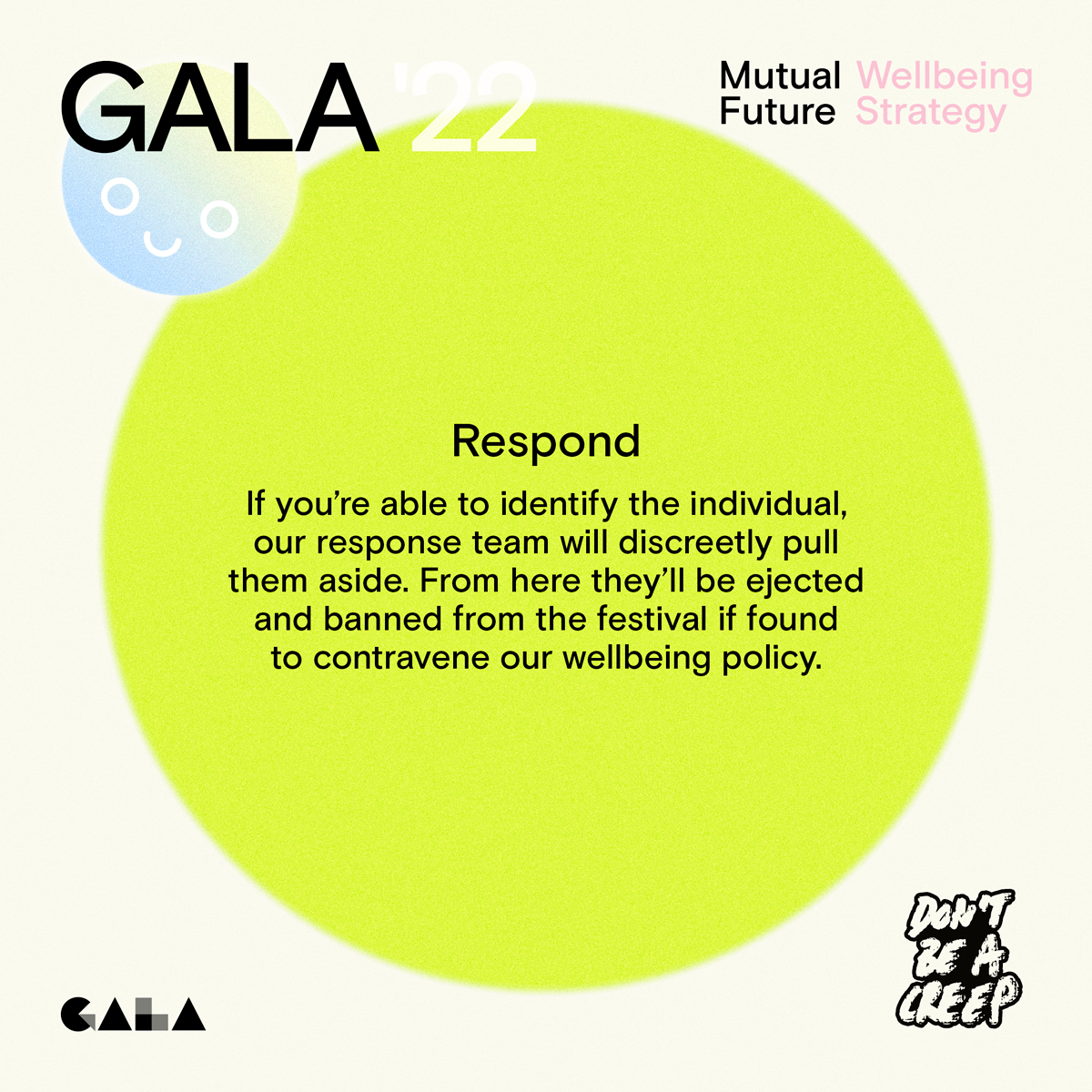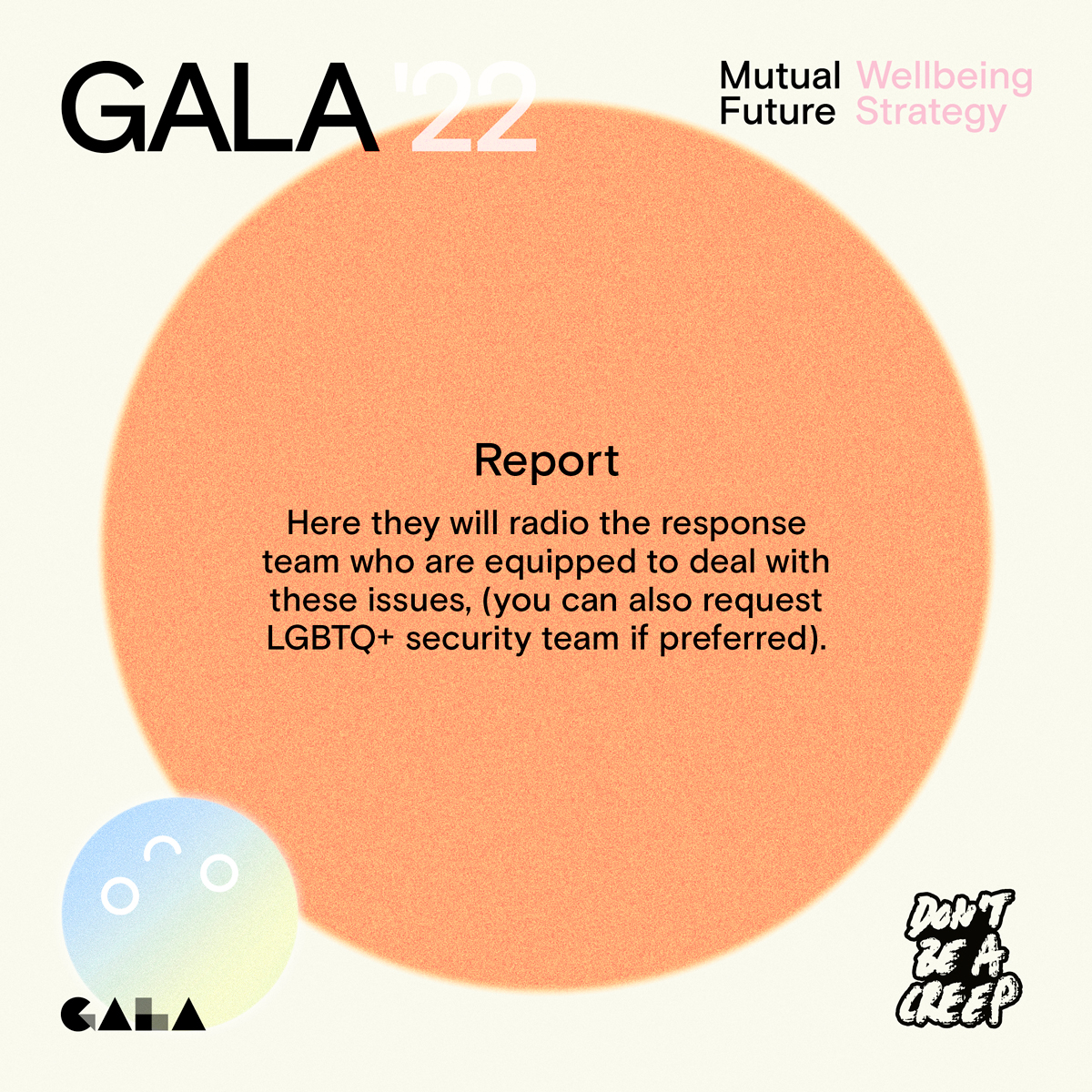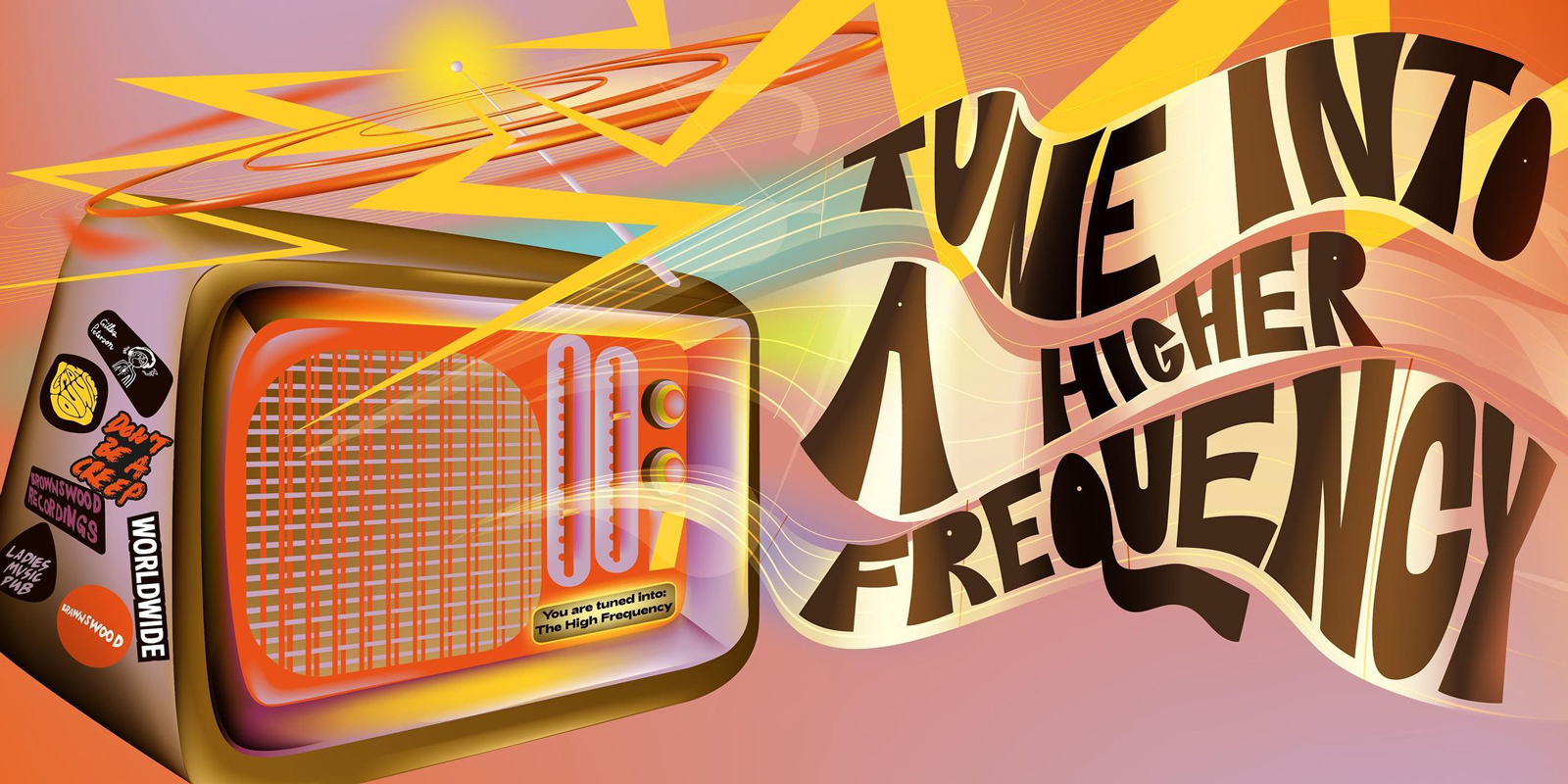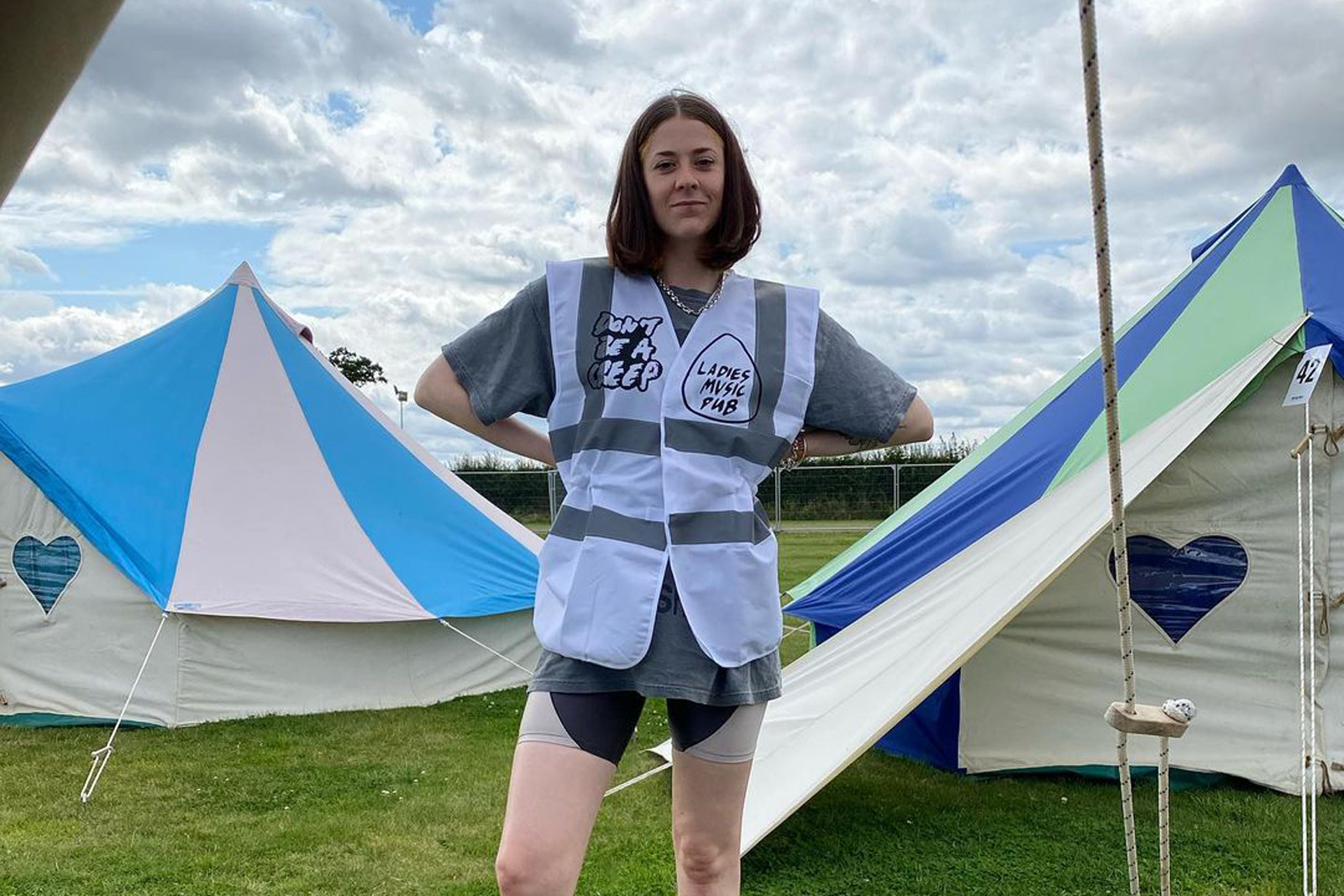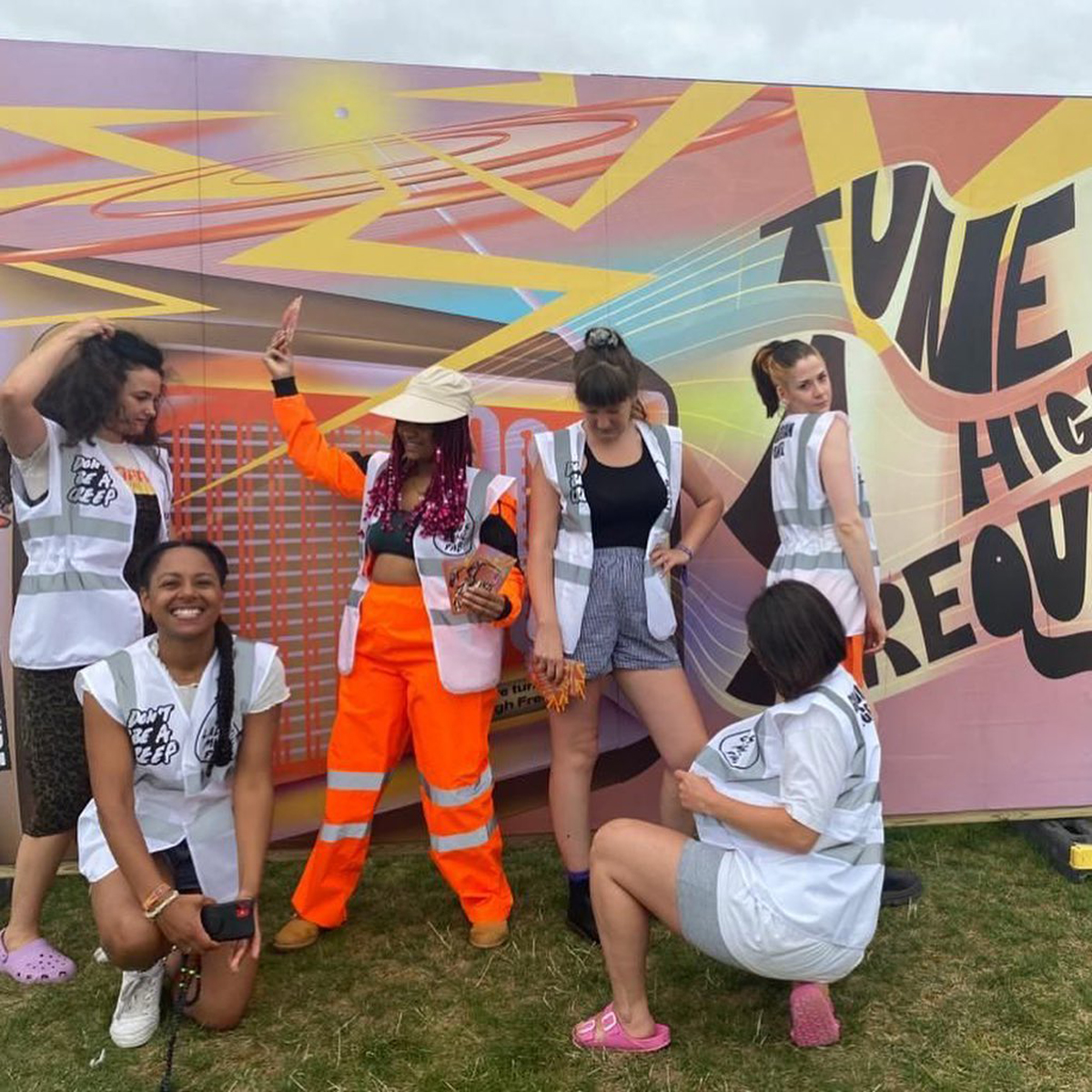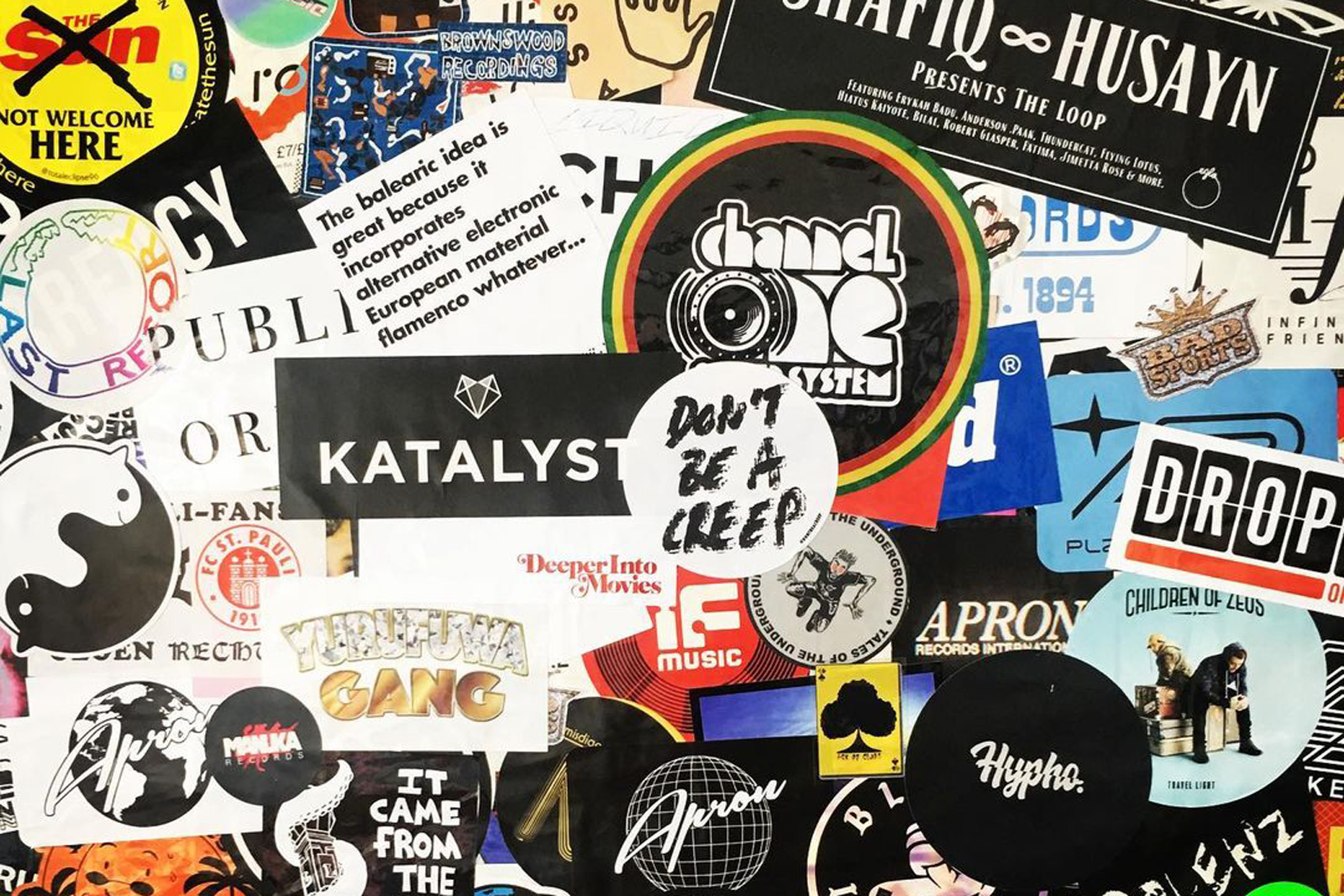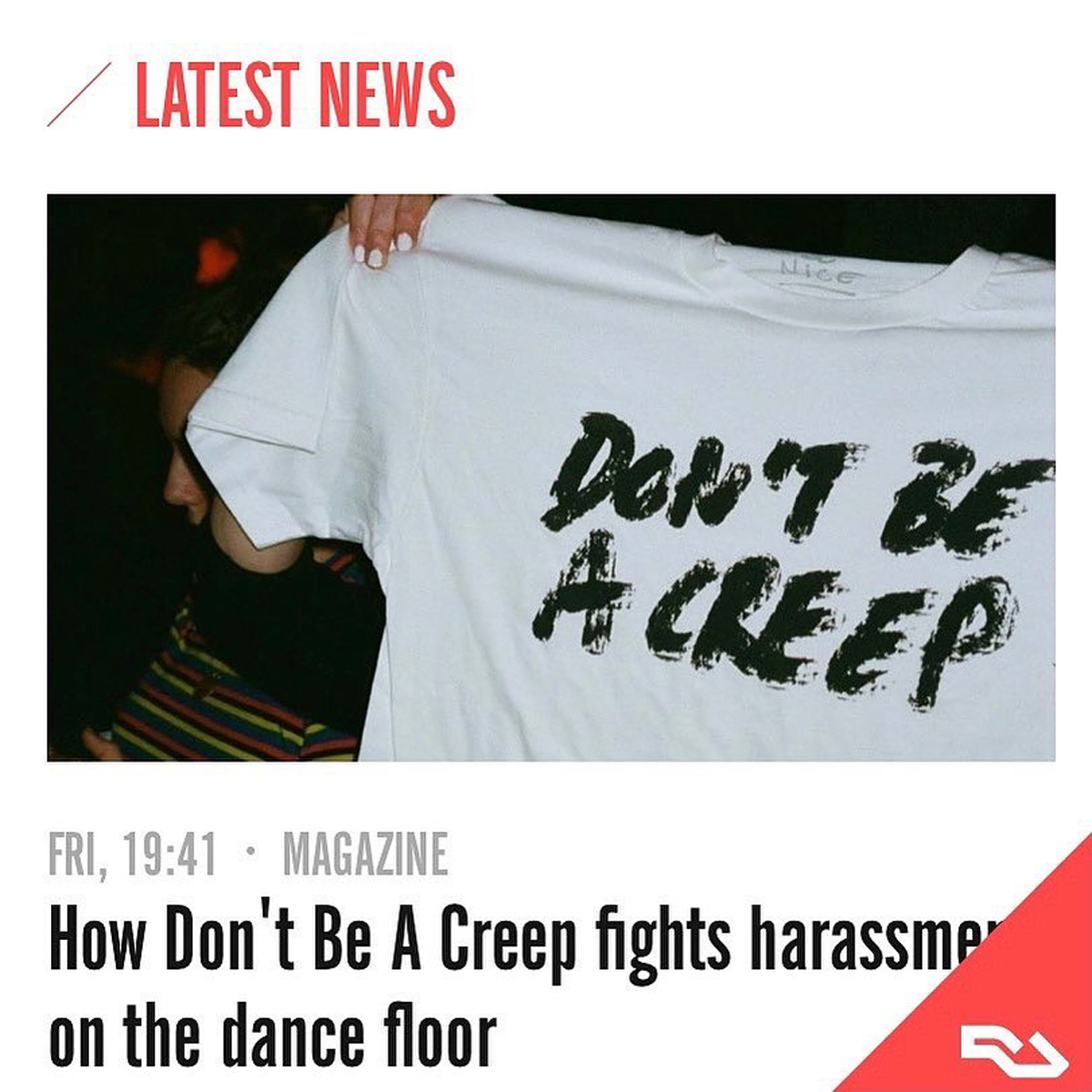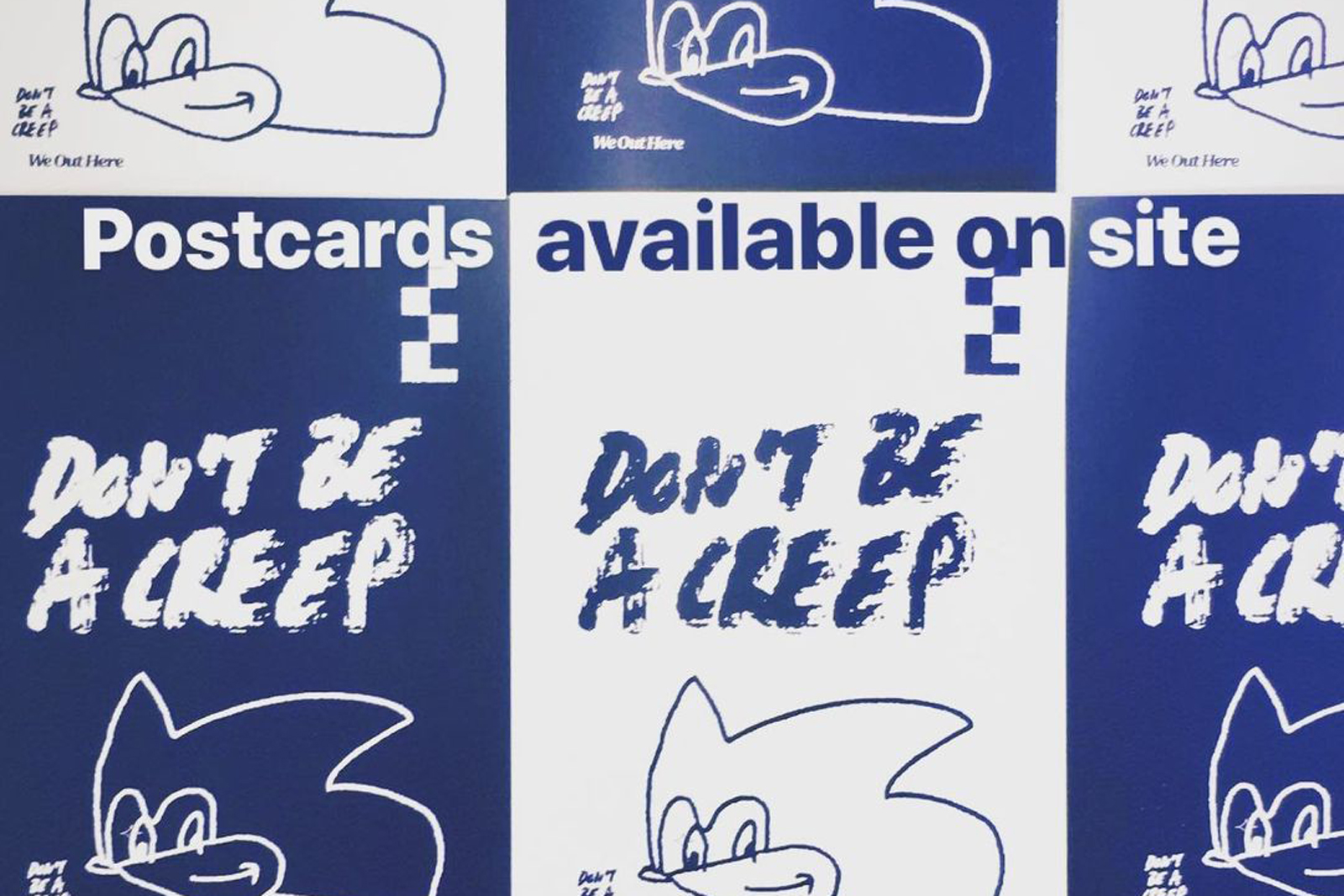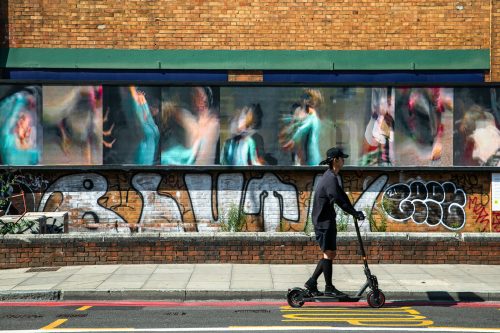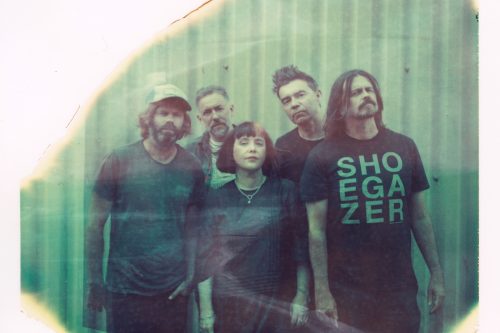Partnerships
The artists and DJs de-creeping festivals
The first thing revellers saw when they arrived at the site of Gilles Peterson’s increasingly legendary We Out Here this summer was a huge board welcoming everyone to the festival’s new home. One of the second might have been Don’t Be A Creep’s lo-fi, punky visual campaign that used the slogan ‘family business’ a quartet of photocopied cherubs and a tagline: ‘a place where we look out for one another’.
“We’ve been at We Out Here since the start and what really stands out is the community feel and the family values says Don’t Be A Creep (DBAC) co-conspirator Maude Churchill. “We used that as a way of diving into the issues.”
The issues are ones that relate to safer spaces – concepts which were front and centre of this year’s festival season and which are flowing into club culture more generally as the nights draw in and evenings out becomes more venue-centred.
“It’s house rules!” says DJ, art director and DBAC founder Ruby Savage. “Like at home when there was a pen and pad in the kitchen with your mum’s notes on it – do this, do that, do the dishes by the time I’m home. It’s that idea. We run a household together, we run this space together, we’re a family.”
Header photo by Hannah Burton
15.09.23
Words by


